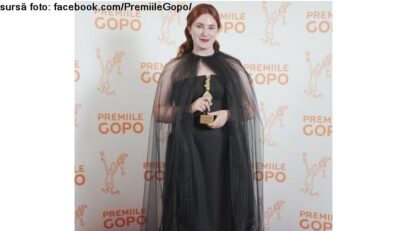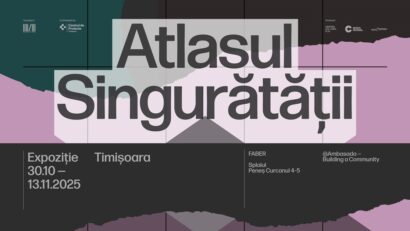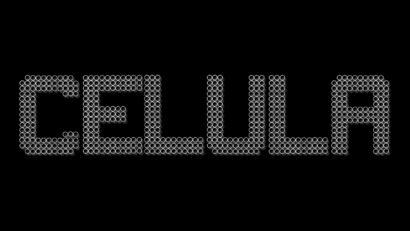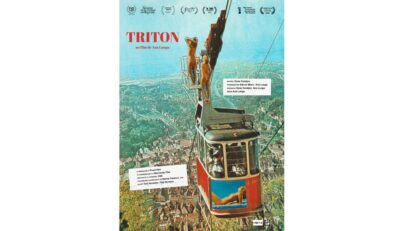Acasă, My Home, the debut documentary by director Radu Ciorniciuc
A talk with first-time director Radu Ciorniciuc about his award-winning film.
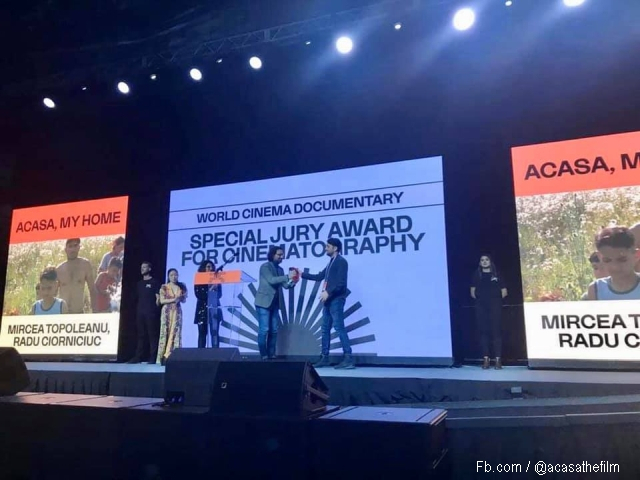
Corina Sabău, 11.04.2020, 14:00
Screened
in the World Cinema Documentary section of the 42nd edition of
Sundance, the largest independent film festival in the United States, Acasă, My Home won the festival’s World
Cinema Documentary Special Jury Award for Cinematography. The jury praised the
film for the fluidity and tenacity of the camerawork. Radu Ciorniciuc and
Mircea Topoleanu were responsible for the film’s cinematography. The film was
due to open the 13th edition of the One World Romania documentary
film festival, but the entire event was postponed due to the coronavirus
outbreak.
Acasă, My Home is about the Enache family, who
lived amid the wilderness of the Văcărești Delta, an abandoned water reservoir
in Bucharest that in time was taken over by vegetation and became a home to
hundreds of species of animals and rare plants. The family lived in a shack in
the middle of this incredible ecosystem for almost twenty years until the land
was awarded protected area status and renamed the Văcărești Nature Park,
thereby becoming first the urban nature park in the country. The film’s
director Radu Ciorniciuc followed the Enache family for four years, documenting
their life both before they were evicted from the delta and after, when they
made the transition from a life lived in perfect harmony with nature to one in
which they had to navigate the challenges of city life.
A
journalist by trade, Ciorniciuc is one of the founders of Casa Jurnalistului
(The Journalist’s House), a Bucharest-based collective for independent
reporters; has written for The Guardian, Al-Jazeera, Channel 4 News and ZDF;
and has won many local and international awards, including from the Royal
Television Society and Amnesty International UK in 2014 and the Harold Wincott
Award for Business Economic and Financial Journalism in 2016. We asked him how
he made the transition from journalism to documentary film making:
The
transition was relatively natural in my case, because in the reports I used to
make for The Journalist’s House I would always try to delve deeper into my
subjects and take a more documentary approach. In Acasă, My Home, I realised I couldn’t possibly tell the family’s
story using only the limited tools of journalism. So, that’s when I began
looking for different ways to tell their story and to tell it in a manner that
was as close as possible to how I saw it in my mind. The four years I spent
working on Acasă, My Home was like
going to film school for me, I took part in many workshops around Europe, where
I met professionals from whom I learnt a great deal. It all came out of a need
to tell this story in a more profound and complex way than I would have been able
to do in a reportage piece.
Acasă, My Home was one of the most popular films
among the public at the 2020 Sundance Film Festival, with its heart-breaking
portrayal of the youngest members of the Enache family and the challenges they
face at an age at which most other children are more interested in tablets and
smartphones. Director Radu Ciorniciuc:
Acasă, My Home could be described as a family
drama. It tells the story of this family over the course of four years. I
followed them for two years while they lived in the Văcăreşti Delta and for
almost two more years after they were resettled in the city, during the process
of their social integration. The film is made in collaboration with Lina Vdovîi,
who co-wrote the script, and Mircea Topoleanu. None of us had any experience of
filmmaking, but we managed to work together, and at some point we were joined
by a film producer with more experience in this field. In any case, because we
are journalists and have access to channels that allowed us to stay in
permanent contact with the public, the project enjoyed a certain visibility. We
also tried to consolidate the social project we initiated and which was aimed
at making the transition to city living less traumatising for both the children
and their parents, and we got a lot of help in this endeavour from the public. It
was with this support that we were able to launch the multimedia project called
Acasă consisting of a photo album with
pictures taken by the children themselves during their first year of
transition, when they documented their departure from the delta all the way
through to the end of their first year in school. They had never been to school
before that.
The
team who worked on the film also launched a social project involving various
specialists and humanitarian organisations. The eleven members of the Enache family
had been living a life cut off from society, with no ID papers and no access to
education and healthcare. Now, all nine children have IDs, go to school and get
regular medical check-ups, and the adults have jobs. Radu Ciorniciuc:
There
were a number of contradictory things that drove me to make this film. Despite
their obviously precarious social condition, I was fascinated by the strong
family feeling they had and how they cared for one another. Coming to this film
project after living abroad for some years, a period in which I worked really
intensely, almost to the point of burnout, I was all the more fascinated by
these people. This is partly what kept me involved with this subject, the way these
people related to each other, despite their precarious material situation. It
wasn’t new to me, just something I’d forgotten about. I lived on my own from
when I was quite young and I had somehow forgotten what it’s like to live with
your brothers and sisters and for your parents to take care of you. This is
what drove me to want to do more for them than just produce a reportage. And,
in a way, this film made me less afraid of love and vulnerability. (Tr. CM)

